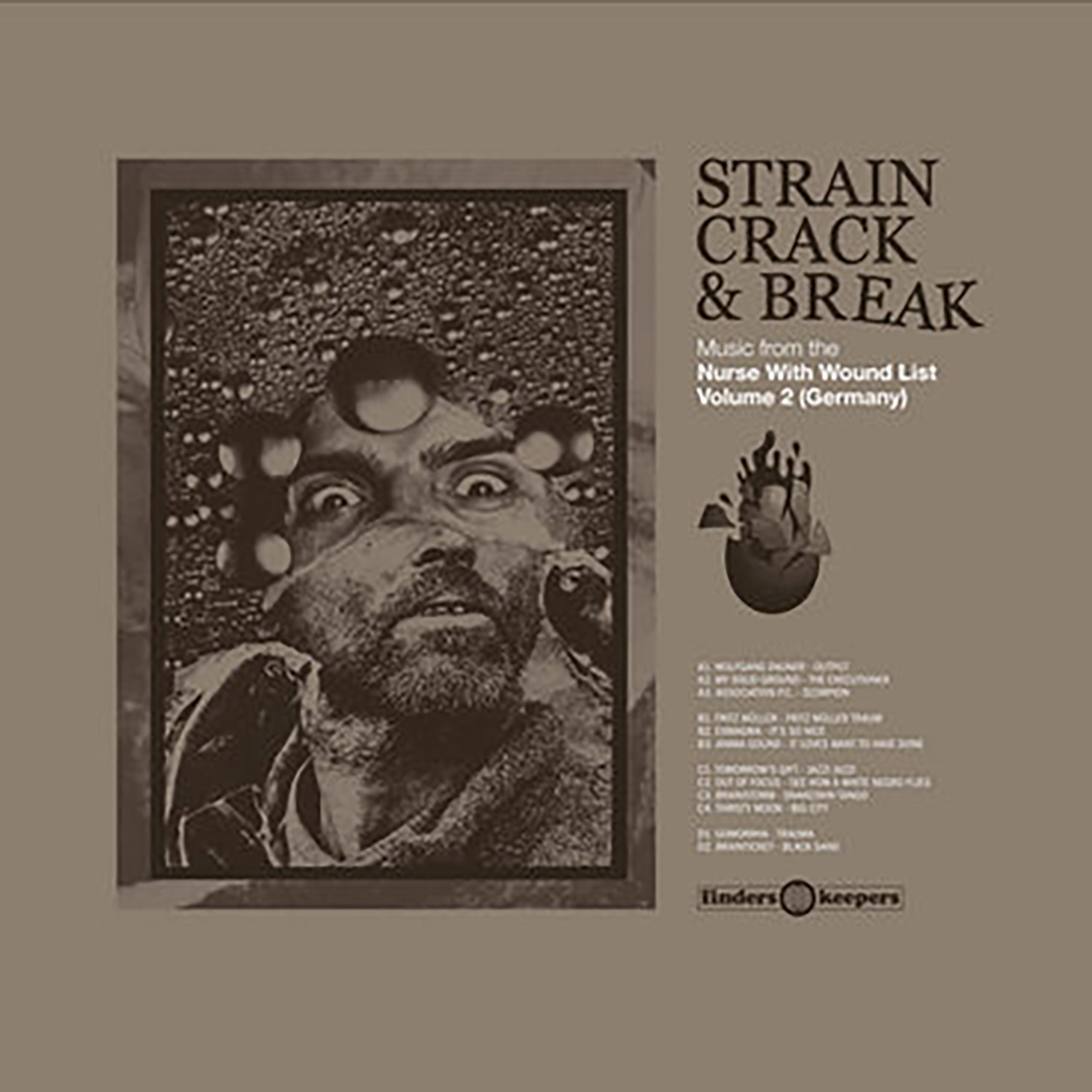 As a longtime Nurse With Wound fan, I have always been a bit amused and perplexed by the almost-religious reverence that people continue to have for Steven Stapleton's famous list. For one, it is hard to process that there was once a teenager in the '70s who was so cool that adults all over the world would spend the next forty years trying to replicate his record collection. Secondly, it seems like any underground bands from that era who have managed to remain obscure until now have probably earned that fate for valid reasons, as there have been plenty of blogs and reissue labels tirelessly unearthing and championing freaky sounds since the advent of the internet. Consequently, when this series was announced, I wondered what could still possibly be left undiscovered. That said, the idea of a Stapleton-curated tour of the most outré and adventurous prog, jazz, and avant-garde artists of the early- and mid-1970s still packs quite an appeal for me, so I am delighted that this better-late-than-never series exists. It admittedly took me a while to warm to the French volume, as I tend to run screaming from proggy indulgence and unfiltered Dada antics and there was plenty of both, but there were definitely some gems as well. Unsurprisingly, this stronger second volume features an even higher proportion of such gems, as it is not a mere coincidence that krautrock had a larger cultural impact than its French counterpart.
As a longtime Nurse With Wound fan, I have always been a bit amused and perplexed by the almost-religious reverence that people continue to have for Steven Stapleton's famous list. For one, it is hard to process that there was once a teenager in the '70s who was so cool that adults all over the world would spend the next forty years trying to replicate his record collection. Secondly, it seems like any underground bands from that era who have managed to remain obscure until now have probably earned that fate for valid reasons, as there have been plenty of blogs and reissue labels tirelessly unearthing and championing freaky sounds since the advent of the internet. Consequently, when this series was announced, I wondered what could still possibly be left undiscovered. That said, the idea of a Stapleton-curated tour of the most outré and adventurous prog, jazz, and avant-garde artists of the early- and mid-1970s still packs quite an appeal for me, so I am delighted that this better-late-than-never series exists. It admittedly took me a while to warm to the French volume, as I tend to run screaming from proggy indulgence and unfiltered Dada antics and there was plenty of both, but there were definitely some gems as well. Unsurprisingly, this stronger second volume features an even higher proportion of such gems, as it is not a mere coincidence that krautrock had a larger cultural impact than its French counterpart.
Much like the first volume, this latest one is packed full of unfamiliar names, which is an impressive feat given how deeply fans have mined '70s German music for killer obscurities. I was, however, vaguely familiar with Wolfgang Dauner and Limpe Fuchs beforehand, probably because they are responsible for some of the album’s most weird and cacophonous moments and that tends to be my wheelhouse. Dauner's piece, for example, sounds like several fusion bands falling down a flight of stairs, while Anima-Sounds' piece captures a (possibly nude) Fuchs wildly free-drumming and yelping along with a sliding and blurting chaos of homemade instruments. It is easy to see how the latter would have blown some goddamn minds at the time, though it does leave something to be desired in the realm of songcraft. The bulk of the album's other luminaries tend to exist in a gray area where jazz, prog, and psychedelia all blur together into unfamiliar new strains. For example, Association P.C.'s "Scorpion" resembles a Miles Davis-less Bitches Brew session, while the feral-sounding Exmagma call to mind Richard Hell or James Chance fronting King Crimson. Elsewhere, My Solid Ground evokes a baffling collision of This Heat and early Coil with the organ bombast of Emerson, Lake, and Palmer. I dearly wish the latter element was absent, but the non-organ passages are right up my alley. That said, the most wonderful surprises are the two lengthy jams that close the album. In Thirsty Moon's "Big City," a very NWW-sounding percussion motif steadily builds into a heavy rolling groove flavored with subtle elements of sound collage that rivals much of Can's stronger work. Gomorrha's "Trauma" is similarly driven by a muscular beat, but instead blossoms into a molten tour de force of spacey psychedelia. Yet another favorite is the hallucinatory marching band mindfuck of erstwhile Neu!/Kraftwerk member Eberhard Kranemann's "Fritz Müller" guise. The rest of the songs make a compelling and varied suite of inspired oddities, but the Gomorrha, Thirsty Moon, and Fritz Müller pieces all felt revelatory enough to trigger an immediate album-hunting binge. While Steven Stapleton has been one of my favorite artists for ages, it is now dawning on me that he is one hell of a great curator as well.
Samples can be found here.
Read More

